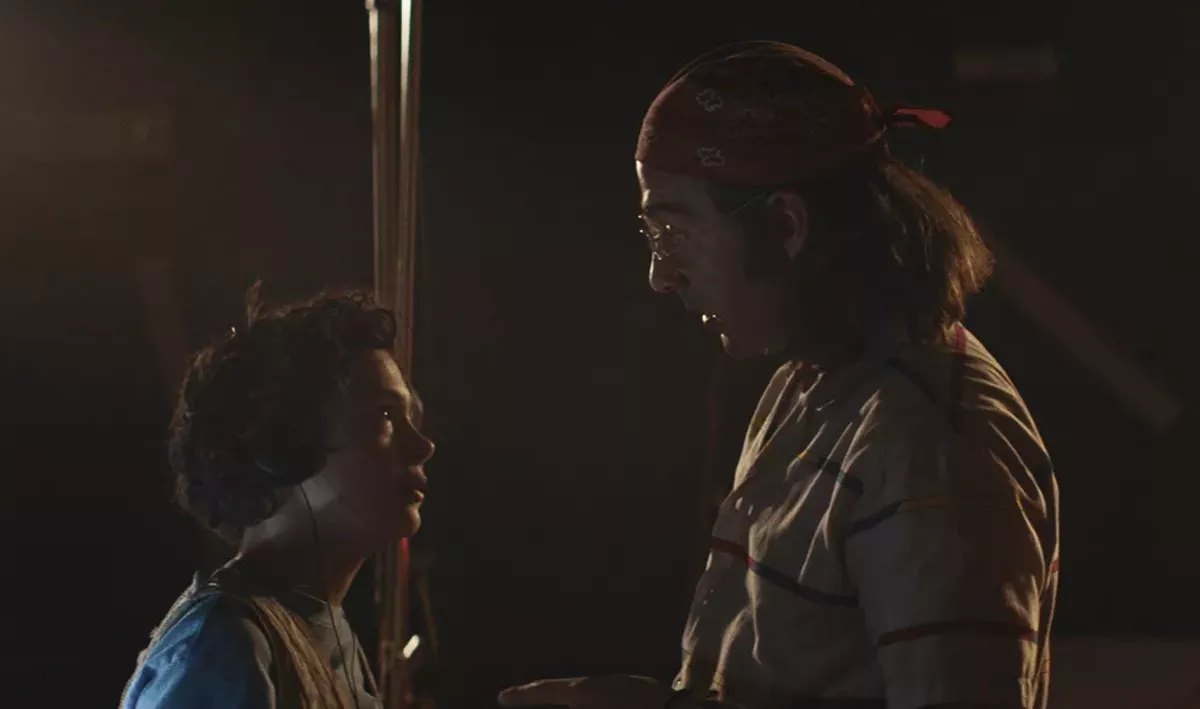

Audio By Carbonatix
[
{
"name": "GPT - Leaderboard - Inline - Content",
"component": "35519556",
"insertPoint": "5th",
"startingPoint": "3",
"requiredCountToDisplay": "3",
"maxInsertions": 100,
"adList": [
{
"adPreset": "LeaderboardInline"
}
]
}
]
The biggest shock of Honey Boy is that Lucas Hedges is — suddenly, improbably, it seems — an adult. Having starred in countless films over the last few years from Boy Erased to Lady Bird and, unfortunately, Three Billboards, he's been cast quite reliably as a meek and sweethearted teenager, making it a shock to see him aged and more fully framed.
This dissonance is chronic; one feature of filmmaking (along with the practices that surround the Hollywood version) is that it makes performers seem impossibly preserved — no help to most of us with fears of aging. Screen actors: they just stay the same. It's about once a decade or two that performers who are blessed to have the option to choose — with the help, probably, of their agents — to shift their persona, a chance to pivot toward some other type of role. With young and older actors, it's more perturbing than in other cases; these swerves become compulsory facts of work and aging, thus more rattling and acute.
Honey Boy is essentially about this process, but seen from the actor's perspective: an autobiographical account of struggles growing up in show business. As scripted by longtime Disney Channel actor and child star Shia LaBeouf (while reportedly in rehab), it juxtaposes the dreamlike features and eerie traumas of life on set — of enacting explosions, car crashes, fights, and first loves daily — with the life lived off. Not skimping on the ways substance use that helps most of us cope with our respective jobs, the film catches the adult Otis (Hedges) landing in rehab shortly after its start. Oscillating between a filmic present of 2005 with a child-acting past of '94, Honey Boy mostly stays with the younger Otis (Noah Jupe), managed by his often drunken, histrionic, former rodeo clown dad — played ably enough by Shia LaBeouf.
The implications of this setup are clear; in Honey Boy's world, show biz is both a grave and pretty matter, inflicting across generations a form of inherited generational trauma. Director Alma Har'el makes ample use of filmic shorthand, her soft focus, close framing, and small, contrasting pops of light amid the digital haze of the film's images letting viewers know they're in on something intimate — just as LaBeouf's own onscreen presence reminds viewers they're experiencing a personal work.
A lot of the time, this setup works, getting at the strangeness of child acting, the inexpert neurosis of show-biz parents, the deep discomfort of a kid serving as a breadwinner for his own parents. LaBeouf's appearance as — basically — his own father may have been a personal working-through of trauma (show-biz kids deserve eternal sympathy), but Har'el keeps things at a pretty distance, suggesting intimacy more through formal cues than she does by working through the film's conflicts.
This procession of textures doesn't veil the film's core problem, however: its attempt to reconcile LaBeouf and us with a father figure who's abusive, bigoted, and negligent — albeit poor, personally traumatized, and sometimes nice. LaBeouf's adoption of the role is nakedly metatextual, meant to scan as a confrontation with some of these same traits as they cross generations, embodied in his own self. But the act is for our own as much as his own benefit, an appeal to the audience and a form of persona maintenance. Conveying true introspection less than public apologia, Honey Boy offers LaBeouf a chance to pivot, adjusting performance of his own brand.
Stay on top of Detroit news and views. Sign up for our weekly issue newsletter delivered each Wednesday.





